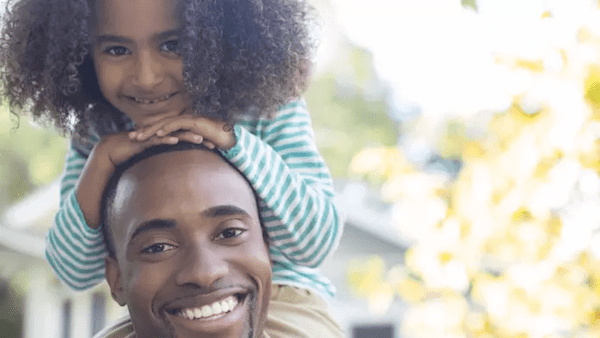What is Unconditional Positive Regard in Psychology?
 As therapists, counselors, social workers, and other members of helping professions, how can we best help our clients help themselves?
As therapists, counselors, social workers, and other members of helping professions, how can we best help our clients help themselves?
As parents, teachers, coaches, and mentors, how can we encourage our children to grow into healthy and happy people with a positive sense of self-worth?
These are the questions that have driven countless studies and investigations into personality development, the effectiveness of therapeutic techniques, and the crafting of impactful parenting strategies. While there is undoubtedly still much to be discovered, psychologists have been able to define at least one vital technique for helping our clients and our children be the best versions of themselves: unconditional positive regard.
This attitude is a powerful one—it can have a huge impact on how our clients and children feel about themselves and others, and set them up for success. Read on to learn about what unconditional positive regard is, how it works, and what it can do for your clients and your children.
Before you read on, we thought you might like to download our three Positive Psychology Exercises for free. These science-based exercises will explore fundamental aspects of positive psychology including strengths, values, and self-compassion, and will give you the tools to enhance the wellbeing of your clients, students, or employees.
This Article Contains:
- What is Unconditional Positive Regard? A Definition
- The Psychology Behind Unconditional Positive Regard
- Examples of Unconditional Positive Regard in Counseling
- Using Unconditional Positive Regard in Social Work
- Parenting with Unconditional Positive Regard (+ Techniques)
- Books by Carl Rogers on Using Unconditional Positive Regard
- 9 Quotes on Unconditional Positive Regard
- A Take-Home Message
- References
What is Unconditional Positive Regard? A Definition
So, what is unconditional positive regard?
A general definition is the attitude of complete acceptance and love, whether for yourself or for someone else. When you have unconditional positive regard for someone, nothing they can do could give you a reason to stop seeing them as inherently human and inherently lovable. It does not mean that you accept each and every action taken by the person, but that you accept who they are at a level much deeper than surface behavior (Rogers, 1951).
In therapy, the idea is much the same, although with a more specific purpose: to build a positive, trusting relationship between the therapist and the client.
It is a defining feature of client-centered therapy (and an important feature in many other forms of therapy), in which the client is accepted and supported by the therapist no matter what they say or do (Rogers, 2001).
The Psychology Behind Unconditional Positive Regard
“The kind of caring that the client-centered therapist desires to achieve is a gullible caring, in which clients are accepted as they say they are, not with a lurking suspicion in the therapist’s mind that they may, in fact, be otherwise. This attitude is not stupidity on the therapist’s part; it is the kind of attitude that is most likely to lead to trust…”
Carl R. Rogers
Unconditional positive regard is not about liking a client or accepting everything they have done; it’s about respecting the client as a human being with his or her own free will and operating under the assumption that he or she is doing the best they can.
Having this attitude toward a client can encourage them to share their thoughts, feelings, and behaviors more openly with the therapist.
A client who is afraid the therapist will be shocked, offended, or judgmental will likely not be very forthcoming with any information that they feel may be perceived as negative or unacceptable.
Of course, this withholding of important information can have a very negative impact on the therapeutic relationship and, in turn, on any healing or recovery that the client is looking to gain from therapy.
It has been suggested that unconditional positive regard from the therapist may be a substitute for the unconditional positive regard that the client did not receive from their parents or other important adults in their childhood.
Carl Rogers believed that those who do not receive such regard from their parents at a young age are more likely to have low self-worth and less likely to reach their full potential with regards to personal development (Rogers, 1959).
A therapist’s unconditional positive regard may provide the client with the acceptance and love they did not receive as a child, allowing them to feel safe, open up, and work through their issues with a sort of “proxy” parent (Wilkins, 2000).
Carl Rogers’ Theory
“To be with another in this [empathic] way means that for the time being, you lay aside your own views and values in order to enter another’s world without prejudice. In some sense it means that you lay aside your self; this can only be done by persons who are secure enough in themselves that they know they will not get lost in what may turn out to be the strange or bizarre world of the other, and that they can comfortably return to their own world when they wish. Perhaps this description makes clear that being empathic is a complex, demanding, and strong—yet subtle and gentle—way of being.”
Carl R. Rogers
Carl Rogers described unconditional positive regard as:
“…caring for the client, but not in a possessive way or in such a way as simply to satisfy the therapist’s own needs… It means caring for the client as a separate person, with permission to have his own feelings, his own experiences”
(Rogers, 1957).
We know what unconditional positive regard is, but you may be wondering how is this supposed to contribute to an effective therapeutic experience. Carl Rogers has an answer, and it’s based in what he saw as innate human needs and instincts.
Rogers believed that we all have two instinctual urges and desires that make unconditional positive regard an effective tool of therapy:
- The drive towards socially constructive behavior, or interacting effectively and positively with others.
- The need for self-determination, or the right and responsibility to choose one’s own path (Joseph & Murphy, 2013).
Rogers posited that when a therapist respects the client’s need for self-determination and adopts the attitude that the client is doing the best they can with the tools and resources they have available, the client is more likely to allow their urge towards socially constructive behavior to drive their decisions and their actions.
Examples of Unconditional Positive Regard in Counseling

In this case, the therapist can display unconditional acceptance by asking the client about their feelings and what they believe drove the thought or behavior rather than focusing on how the client’s actions would hurt someone else or on the illegality or immorality of the action.
For another example, therapists have the opportunity to display unconditional positive regard when a client shares a habit or behavior with the therapist that is self-detrimental or self-harmful, such as abusing drugs or alcohol, cutting, or binge-eating.
Instead of chiding the client for this behavior or ignoring its potential to harm, the therapist might help the client realize that the behavior is harmful while simultaneously assuring the client that she is worthy of love and self-care and that she deserves to have a healthy and happy life.
Finally, unconditional positive regard can be seen in the therapist’s modeling of acceptance to the client. The unconditionally accepting therapist will show the client that he is still accepted and valued, even when he makes mistakes.
The therapist’s positive regard works as a model for the client’s acceptance of himself, giving him the message that if the therapist can accept him no matter what he does, he can also accept himself exactly as he is.
Unconditional positive regard – the power of self acceptance – Michelle Charfen
Using Unconditional Positive Regard in Social Work
Unsurprisingly, this concept can be applied in many areas outside of therapy. For instance, it can have a positive impact on a social worker’s efforts.
It works in much the same way as it does in therapy, as social work shares many characteristics with therapy and counseling. However, social workers often interact with more people and in contexts with broader, more relational-based issues, such as families, couples who are struggling, and other relationship problems.
Social workers will often work with clients who are at a low point in their lives. Often, clients will have a strikingly negative view of themselves (and/or others). Even more frequently, clients will hail from remarkably different cultures, childhoods, and experiences than the social worker.
This diverse mix of clients makes unconditional positive regard an essential feature of social work.
Social workers will improve their ability to relate with their clients and enhance their ability to help them when they embrace unconditional positive regard and acceptance. Instead of imposing their own views, values, and beliefs on their clients using unconditional positive regard will guide them towards “meeting the client where they are” and encouraging them to follow a path that is consistent with their own views, values, and beliefs.
Just like the therapist, the social worker does not need to accept and approve of every behavior the client displays; instead, he or she should focus on accepting that the client is a self-directed individual with free will and their own unique wants and needs.
A social worker who accepts this about their clients will find that their clients are more open to discussion and more apt to accept themselves as they are, believe that positive change is possible, and commit to making such changes.
Parenting with Unconditional Positive Regard (+ Techniques)
“What we’ve always said is that every child here is going to be treated with unconditional positive regard because they deserve it as every child does. It’s all about making healthy, caring attachments for these boys… It’s about learning to develop a relationship, something many of them have never done before.”
Dan Gallagher
“The best way to raise positive children in a negative world is to have positive parents who love them unconditionally and serve as excellent role models.”
Zig Ziglar
Similar to the unconditional positive regard used in therapy and social work, parenting with unconditional positive regard does not mean that you accept and approve of everything your child does (Rogers, 1946).
It is not an attitude intended to give the child free reign to behave in whatever dangerous or unhealthy ways they would like; rather, it is an attitude that allows the child to feel loved and accepted and facilitates the development of self-worth and self-confidence (Rogers, 1946).
According to Carl Rogers (1951), showing unconditional positive regard for your children helps them meet two essential needs: experiencing positive regard from others and a positive sense of self-worth.
Accepting and loving your children for who they are, means not withdrawing or limiting your love and acceptance when they do something you do not approve of; this is conditional positive regard, in which you give your children the message that they are only loved and accepted when they do the “right” things.
Given this conditional acceptance, they may grow up to make all the “right” choices, but their self-worth and self-esteem may never develop to their fullest potential.
When you adopt an unconditional positive attitude toward your children, you allow them to be free to try new things, make mistakes, and be spontaneous.
They will undoubtedly make some decisions that lead to negative consequences, but only those who are free to craft their own path and learn from honestly-made mistakes will be likely to develop a healthy sense of self-worth and reach self-actualization (the highest level of development according to humanist psychologists like Rogers; Maslow, 1943).
Now that you know why you should consider applying unconditional positive regard to the raising of your children, you might want to know how you can apply it. The four techniques listed below can help get you started.
Modify Your Words
Unsurprisingly, one of the best ways to show your child unconditional positive regard is with your words. It can be difficult to be unconditionally positive and accepting when your child has displeased or disappointed you, but this is when it is most important!
You might be tempted to scold your child for the behavior. While this is not necessarily harmful, you should make sure that you temper any criticism with assurances that their behavior has not changed your feelings about them.
For example, instead of saying, “Your behavior was embarrassing and unacceptable,” you might say “I love you and always will, but I am disappointed by your actions.”
It’s a simple change in theory—although it can be more difficult to actually implement—but it can have a huge impact on how your child sees herself and the development of her self-worth.
Focus on Feelings
When your child comes to you with an admission (or is caught in bad behavior), this is an excellent opportunity to practice unconditional positive regard.
The default response might be to get upset, to chastise him for what he has done wrong, and discipline or correct him.
While discipline and correction are not necessarily harmful, getting upset and chastising him will likely not get you the result you want: a child who weighs their options makes thoughtful decisions and maintains a positive sense of self-worth.
Instead of giving in to the urge to scold or focus on what they did wrong, try focusing on their feelings instead. This is especially impactful if your child came to you with an admission of guilt or a request for advice. Ask him how he feels about his actions and try to guide him towards making better decisions for his own reasons instead of for your reasons.
Cultivate Your Own Attitude of Unconditional Positive Regard
To cultivate an attitude of unconditional positive regard for your child, try reminding yourself of some simple truths. You can repeat these sayings as a twist on the usual self-focus of mantras or affirmations:
- “My child’s worth is non-negotiable and does not need to be earned.”
- “I approve of my child without condition, although I may not approve of all the choices my child makes.”
- “I give my child permission to make mistakes and I believe in his/her ability to learn from them.”
- “I believe in my child’s ability to become who they are meant to be.”
- “I am here to help, understand, and provide guidelines—not to criticize.” (McMahon, 2013)
Unconditional Positive Regard for Teachers
The Public Broadcast System offers some guidance for teachers (although it applies to parents as well) on how to implement unconditional positive regard and encourage the development of a child’s self-worth and self-esteem.
According to PBS, the main factors include:
- Giving the child honest recognition for their success and achievement.
- Offering specific (as opposed to overly general) praise for their good decisions and actions.
- Respecting the child by offering them choices, abiding by their decisions, and explaining the reasoning behind our own decisions.
- Help them achieve competence by encouraging them to be independent and offer diverse opportunities to be challenged and to be successful.
Books by Carl Rogers on Using Unconditional Positive Regard
Luckily, Carl Rogers was not only a groundbreaking thinker and psychologist, but also a prolific author! If you want to learn more about unconditional positive regard directly from the source, you don’t have to dig too deep into academic journals.
The books below were written by Rogers and describe his views on therapy, personal development, and the powerful use of unconditional positive regard.
These books include:
- Client-Centered Therapy: Its Current Practice, Implications, and Theory by Carl R. Rogers (Amazon)
- Significant Aspects of Client-Centered Therapy (Psychology Classics Book 2) by Carl R. Rogers and David Webb (Amazon)
- Counseling and Psychotherapy by Carl R. Rogers (Amazon)
- A Way of Being by Carl R. Rogers (Amazon)
- On Becoming a Person: A Therapist’s View of Psychotherapy by Carl R. Rogers and Peter D. Kramer (Amazon)
- Carl Rogers On Personal Power: Inner Strength and Its Revolutionary Impact by Carl R. Rogers (Amazon)
- Active Listening by Carl R. Rogers and Richard Evans Farson (Amazon)
If you’re such a voracious reader that these simply won’t cut it in your quest to learn about unconditional positive regard, here are a few bonus books on the subject by other authors:
- Interdisciplinary Applications of the Person-Centered Approach by Jeffrey H. D. Cornelius-White, Renate Motschnig-Pitrik, and Michael Lux (Amazon)
- Unconditional Positive Regard (Rogers Therapeutic Conditions Evolution Theory & Practice) by Jerold Bozarth and Paul Wilkins (Amazon)
- The Carl Rogers Reader by Carl R. Rogers, edited by Howard Kirschenbaum and Valerie Land Henderson (Amazon)
9 Quotes on Unconditional Positive Regard
Clearly, unconditional positive regard is a vital concept, not only in therapy but also in other helping professions and in parenting.
If you need a little reminder to cultivate an attitude of unconditional positive regard or motivation and inspiration to embrace such an attitude, refer back to these quotes:
“I’m not perfect… but I’m enough.”
Carl R. Rogers
“The greatest gift that you can give to others is the gift of unconditional love and acceptance.”
Brian Tracy
“In my early professional years I was asking the question: How can I treat, cure, or change this person? Now I would rephrase the question in this way: How can I provide a relationship which this person may use for his own personal growth?”
Carl R. Rogers
“One is loved because one is loved. No reason is needed for loving.”
Paulo Coelho
“When a person realizes he has been deeply heard, his eyes moisten. I think in some real sense he is weeping for joy. It is as though he were saying, ‘Thank God, somebody heard me. Someone knows what it’s like to be me.’”
Carl R. Rogers
“When the other person is hurting, confused, troubled, anxious, alienated, terrified; or when he or she is doubtful of self-worth, uncertain as to identity, then understanding is called for. The gentle and sensitive companionship of an empathic stance… provides illumination and healing. In such situations deep understanding is, I believe, the most precious gift one can give to another.”
Carl R. Rogers
“I don’t want you to save me. I want you to stand by my side as I save myself.”
Sushil Singh
“People are just as wonderful as sunsets if you let them be. When I look at a sunset, I don’t find myself saying, ‘Soften the orange a bit on the right hand corner.’ I don’t try to control a sunset. I watch with awe as it unfolds.”
Carl R. Rogers
“You don’t need someone to complete you. You only need someone to accept you completely.”
Rapunzel from the movie Tangled
A Take-Home Message
This piece defined unconditional positive regard, differentiated it from complete acceptance of any and all behaviors (a key truth to understand for any therapist or parent!), and described how it can be implemented.
As always, I hope you learned something new from this piece, and I hope you walk away with a valuable new insight: that accepting yourself and others does not mean you relinquish the right to be concerned, the desire to improve, or the motivation to pursue positive change, but that it is actually a vital factor in these processes.
As Carl Rogers said, “The curious paradox is that when I accept myself just as I am, then I can change.” After learning about unconditional positive regard, we can now see that this quote applies to others in addition to the self. When we accept ourselves, we give ourselves permission to change. When we accept others as they are, we give them permission to accept themselves.
Personally, I feel this is a powerful idea. It has given me renewed motivation to be accepting, kind, and compassionate towards others. When we see and accept others for who they are, we cannot help but increase the understanding and warmth in the world. I would be honored if you would join me in my commitment to show unconditional positive regard for everyone I meet.
I’m sure I will fail at times, but that’s okay. We know that it is not perfection we should seek; instead, we should seek to spread acceptance, understanding, and love.
What are your thoughts on this technique? Do you think it is vital to successful relationships? If so, is it vital to all relationships or only to parent/child and helping professional/client relationships? Let us know in the comments section!
Thanks for reading!
We hope you enjoyed reading this article. Don’t forget to download our three Positive Psychology Exercises for free.
- Joseph, S., & Murphy, D. (2013). Person-centered theory encountering mainstream psychology: Building bridges and looking to the future. In J. H. D. Cornelius-White, R. Motschnig-Pitrik., & M. Lux (Eds.), Interdisciplinary handbook of the person-centered approach: Research and theory (pp. 213–226). New York, NY: Springer.
- Maslow, A. H. (1943). A theory of human motivation. Psychological Review, 50(1), 370-396.
- McMahon, B. (2013). Unconditional positive regard in parenting. Counseling for Adults, Families, and Children. Retrieved from http://www.barbaramcmahon.org/blog/2013/02/16/Unconditional-Positive-Regard-in-Parenting.aspx
- Rogers, C. R. (1946). Significant aspects of client-centered therapy. American Psychologist, 1(10), 415-422.
- Rogers, C. (1951). Client-centered therapy: Its current practice, implications and theory. London, UK: Constable.
- Rogers, C. R. (1957). The necessary and sufficient conditions of therapeutic personality change. Journal of Consulting Psychology, 21, 95-103.
- Rogers, C. R. (1959). Therapy, personality and interpersonal relationships. In S. Koch (Ed.), Psychology: A study of a science, formulations of the Person and the social context (Vol. 3, pp. 373-375). New York, NY: McGraw-Hill.
- Rogers, C. R. (2001). Client-centered/person-centered approach to therapy. Voprosy Psikhologii, 2, 48-58.
- Wilkins, P. (2000). Unconditional positive regard reconsidered. British Journal of Guidance & Counselling, 28(1), 23-36.
Let us know your thoughts
Read other articles by their category
- Body & Brain (49)
- Coaching & Application (57)
- Compassion (26)
- Counseling (51)
- Emotional Intelligence (24)
- Gratitude (18)
- Grief & Bereavement (21)
- Happiness & SWB (40)
- Meaning & Values (26)
- Meditation (20)
- Mindfulness (45)
- Motivation & Goals (45)
- Optimism & Mindset (34)
- Positive CBT (28)
- Positive Communication (20)
- Positive Education (47)
- Positive Emotions (32)
- Positive Leadership (18)
- Positive Parenting (4)
- Positive Psychology (33)
- Positive Workplace (37)
- Productivity (16)
- Relationships (46)
- Resilience & Coping (36)
- Self Awareness (21)
- Self Esteem (38)
- Strengths & Virtues (31)
- Stress & Burnout Prevention (34)
- Theory & Books (46)
- Therapy Exercises (37)
- Types of Therapy (64)







What our readers think
This technique I believe also exemplifies an individual who is further along the self-realization process. For an individual to genuinly and sustainably interact and see the individual in others often represents what one has practiced with themselves in private, and has expanded this ability out with greater confidence and flexibility to do with others.
Having well grounded self-worth is what allows a person to have more instances and greater consistency in experiencing these desirable states of being like flow and peak experiences in terms of self-actualization, to express themselves unconditionally for meaningful interactions with the self and the world around them, regardless of circumstances that change and take on many forms, and manage much more stable self-esteem for our well-being in each and every moment; having secure high self-esteem. This affects and is applicable to all connections/relationships in life, as the self is the common denominator in all these expereinces. When a person practices and further embodies these virtues reaching ever so closer to these ideals they become virtuosos.
Hello – Thank you very much for your good article
I’m an Iranian student researching about “unconditional positive regard” in Islam – but unfortunately I do not have access to good sources. If it is possible for you, please send me the articles or PDFs of the book about “unconditional positive regard.”
Especially if you have a PDF of this book
(Unconditional Positive Regard (Rogers Therapeutic Conditions Evolution Theory & Practice) by Jerold Bozarth and Paul Wilkins).
Courtney, A great article. I used the concept of unconditional positive regard in a mindful exercise which as very well received.
wonderfully explained and expressed
Great contribution. One very important correction. Most of the 400 schools of Psy pander or outright exploit the ego’s desire to propagandize Free-Will. If you look at the history of the term, st.Augustine popularized it and it became the basis for teaching kids they deserve to be burned alive in real actual fire for eternity. You can google “the evil of self-esteem” & “self-love” and find how overwhelming popular in western religion these things which are very similar to UnConditional Positive Regard are demonized in their entirety. This is probably the main reason we have the largest psychological association in the world& yet mental illness is at an all time high. just my 2cents.
This concept of UPR is a great motivational process and challenge to be the best we can be in our professional as well as daily living with human beings!! Loved the article and options it presented. Courses need to be developed around this concept that, I believe would create a much better world for all who have an open mind to growin their lives!!! Judy Z
I think unconditional positive regard apply to both parent/child relationship and health professional/patient, as well.
It is important because we show humanity to the other.
Brilliant article. simplified explanations of Unconditional positive regard has given me a whole new view towards using this therapy. I am not sure about parenting with it but therapy and social work i understand why it would work. i feel very strong towards this Method and will certainly be researching more about it and putting it into practice in the future
Thank you
Thanks for your article, I was confused with unconditional positive regards. “warm acceptance” and “love” were 2 simple and board to me. But now I have a better understanding and focus on attitude instead. 🙂
Great article. Carl Rogers was one of the Giants of humanistic psychology.It is wonderful to see you writing about his extraordinary contributions